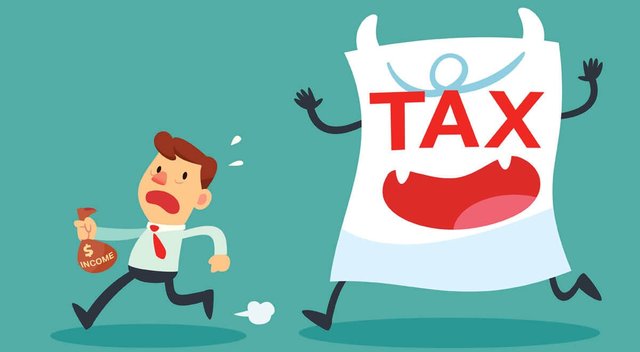
Good morning my fellow Steemers.
What if you realized that a small amount of tax knowledge could save you from needlessly paying 30% of what you earned to the tax man? How much faster could you achieve your financial goals? You need to pay close attention to three types of taxes as an investor:
Ordinary Income Tax. As stated, if you’re a high-income earner, your combined federal and state income taxes are nearing or exceeding 50%.
Long-Term Capital Gains. This is a tax on investments, which is only 20% if you hold your investment for longer than one year before you sell.
Short-Term Capital Gains. This is a tax on investment gains if the investment is sold before you have held it for a minimum of one year.
Today the rates are currently the same as ordinary income taxes. Ouch! Wanna learn more about the power of compounding? Use this link >>>> https://tinyurl.com/msn389n3 <<<<< You'll learn how compounding your growth after taking a 50% tax bite as opposed to a 20% tax bite can mean the difference between arriving at your financial goals a decade early or never getting there at all. Want to understand the real impact of this?
• If you’re getting an 8% gross return on your mutual fund, you’re paying as much as 3% in fees on average —let’s call it 2%, conservatively.
• So now your 8% return nets you 6% after fees. But we’re not done yet.
• If you’re a high-income earner from California or New York with a 50% federal and state ordinary income tax, you’re left with closer to 3% on your investment after all these fees and taxes. Remember you get to spend only what you keep; if you invest with a 3% net return, it takes 24 years to double your money. If you made the same investment in an index fund, your 8% return would have fees in the range of 10 to 50 basis points (or 0.10% to 0.50%). We’ll go for the larger number just to be conservative.
That means you have a 7.5% return (8% - 0.5% = 7.5%), but since the index is not trading constantly, you defer all tax, and so your net return for the year is 7.5%. That means you can reinvest those returns and tap into the incredible power of compounding without the tax man interfering. If you conscientiously manage your investments for tax efficiency, your 7.5% allows you to double your investments in 9.6 years instead of 24 years!
Now do you see the importance of both tax and fee efficiency? So how do you lower your tax bill and keep more of your earnings so you can compound your investments and achieve your idea of Financial Freedom faster?
• Make sure that wherever possible, you invest in a way that allows you to defer your taxes (401[k], IRA, annuity, defined benefit plan) so that you compound tax free and pay tax only at the time you sell the investment. Or set up a future tax-free environment by growing your investments in a Roth.
• When you do sell any investment held outside of a taxdeferred account (like an IRA), make sure you hold for a minimum of a year and a day in order to qualify for the lower long-term capital gains rate (again, at the time of this writing the rate is 20%).
Thanks for reading this short article. Use the link for more information.